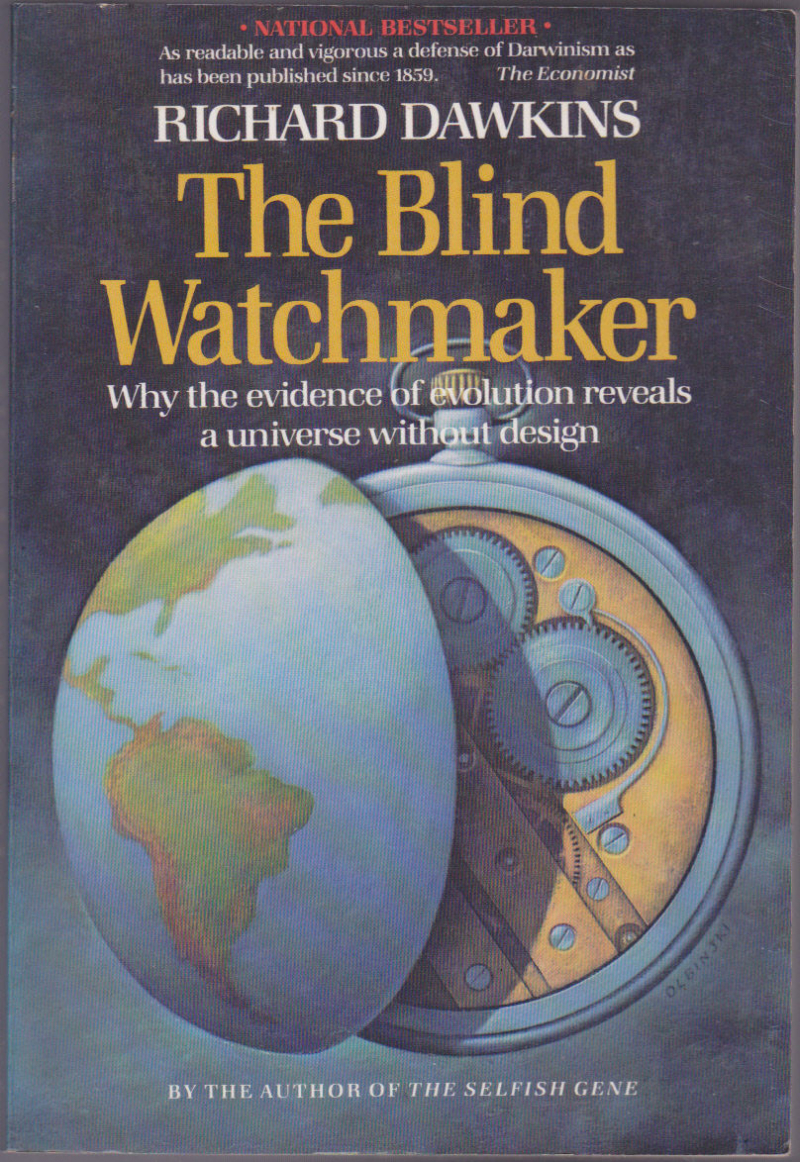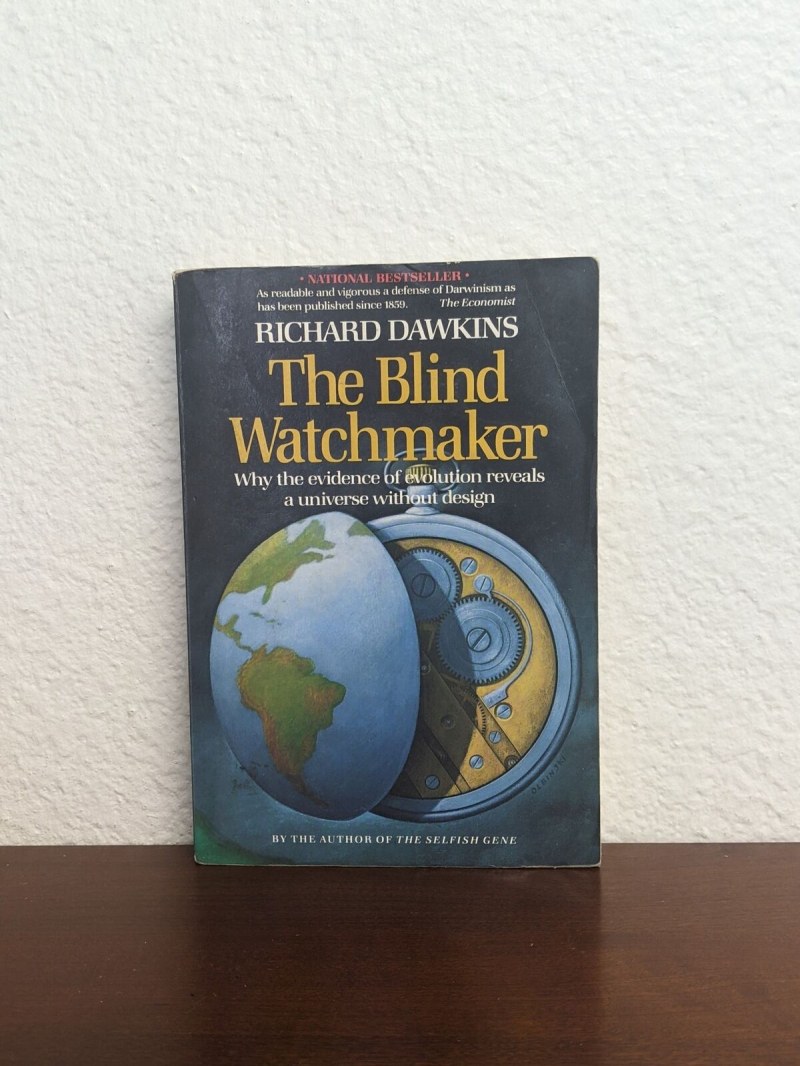The Blind Watchmake

At Oxford University, Richard Dawkins holds the Charles Simonyi Professorship for the Understanding of Science and is the writer of numerous books, including The Selfish Gene and Climbing Mount Improbable.
The foundational book for modern understanding of evolution is The Blind Watchmaker. Theologian William Paley created the well-known creationist metaphor of the expert watchmaker in the eighteenth century. Richard Dawkins creates a sophisticated counterargument in The Blind Watchmaker to demonstrate that the intricate process of Darwinian natural selection is unconscious and automated. If natural selection is the equivalent of a blind watchmaker in nature, it does so without intention or foresight.
Dawkins demonstrates how simple organisms gradually evolve over time to produce a world of incredible complexity, diversity, and beauty in an articulate and singularly persuasive exposition of the principle of natural selection.
Theologian William Paley, who lived in the eighteenth century, claimed that just as a watch is too intricate and useful to have come into existence by chance, so too must all living things, with their vastly greater intricacy, have been purposely constructed. Charles Darwin's remarkable discovery proved these claims to be false. But only Richard Dawkins could have come up with such a powerful rejoinder to creationists. Darwin's discovery of natural selection, an unconscious, automated, blind, yet fundamentally nonrandom process, has no intended goal. If anything can be claimed to serve as nature's watchmaker, it is the blind watchmaker. The Blind Watchmaker, widely regarded as the most influential book on evolution produced in this century, provides a fascinating and approachable introduction to one of the most significant scientific discoveries ever.
Author: Richard Dawkins
Link to buy: https://www.amazon.com/Blind-Watchmaker-Evidence-Evolution-Universe/dp/0393351491/
Ratings: 4.6 out of 5 stars (from 1509 reviews)
Best Sellers Rank: #70,539 in Books
#6 in Creationism
#45 in Genetics (Books)
#4,048 in Reference (Books)











